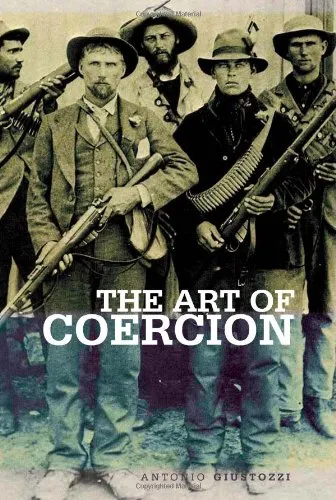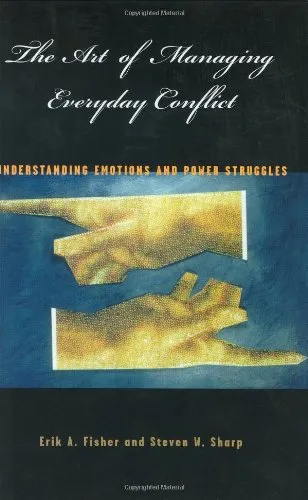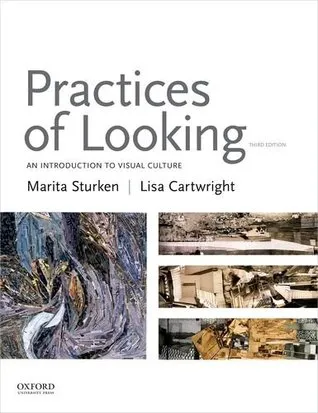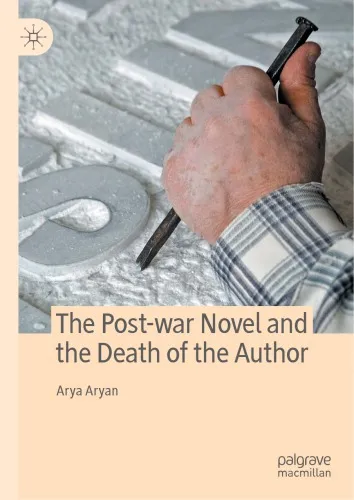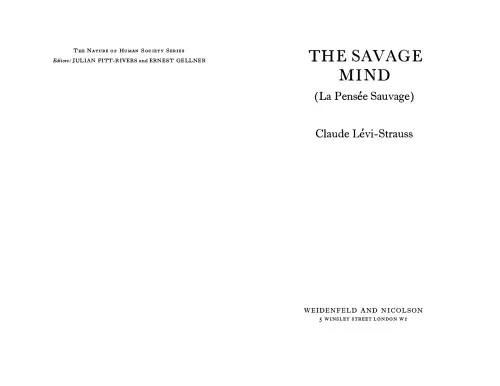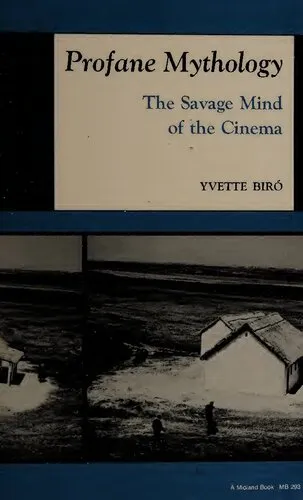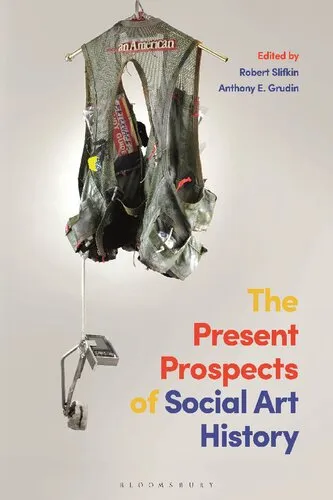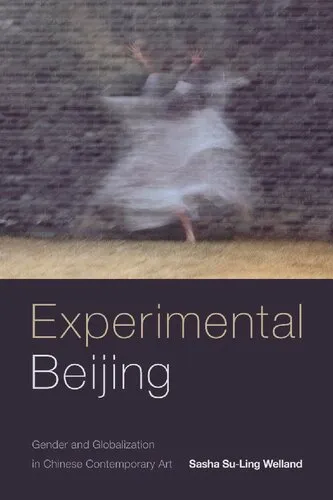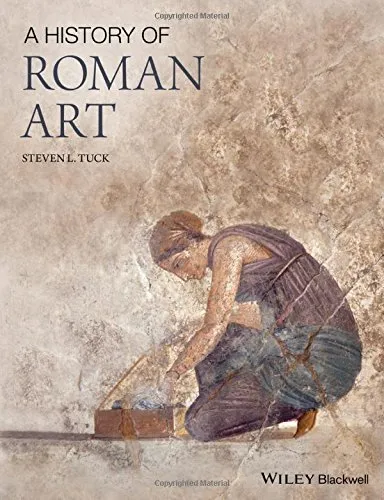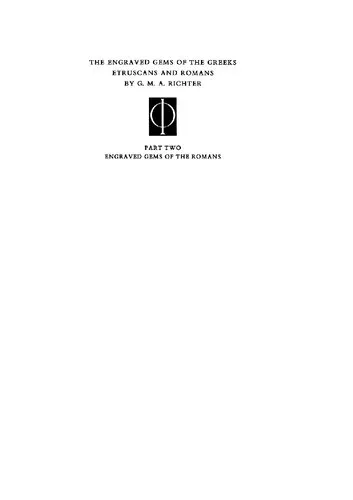The Art of Coercion: The Primitive Accumulation and Management of Coercive Power
4.0
بر اساس نظر کاربران

شما میتونید سوالاتتون در باره کتاب رو از هوش مصنوعیش بعد از ورود بپرسید
هر دانلود یا پرسش از هوش مصنوعی 2 امتیاز لازم دارد، برای بدست آوردن امتیاز رایگان، به صفحه ی راهنمای امتیازات سر بزنید و یک سری کار ارزشمند انجام بدینکتاب های مرتبط:
معرفی کتاب 'The Art of Coercion: The Primitive Accumulation and Management of Coercive Power'
کتاب 'The Art of Coercion' نوشته آنتونیو جیستوچی، تجزیه و تحلیلی جامع از نقش قدرت قهری در طول تاریخ و چگونگی تکامل و مدیریت آن ارائه داده است. اهمیت این کتاب در دورانی که قدرت و کنترل نقشهای متنوع و پر اهمیتی در سیاست و مدیریت عمومی بازی میکند، غیر قابل انکار است.
خلاصۀ دقیق کتاب
کتاب 'The Art of Coercion' تلاش میکند تا فرآیندهای انباشت اولیه قدرت قهری و شیوههای گوناگون مدیریت آن را در بافتهای مختلف سیاسی و اجتماعی بررسی کند. این کتاب در سه بخش عمده تقسیم شده است: تاریخچه و تحول قدرت قهری، روشهای انباشت اولیه و استفاده از آن، و مدیریت موضوعات مربوط به قدرت قهری در سیاست معاصر.
بخش اول به بررسی تاریخی قدرت قهری میپردازد که از زمانهای باستان تا دوران مدرن، تحولات و شکلگیری این نوع قدرت را تحلیل میکند. نویسنده بیان میکند که انباشت اولیه قدرت قهری به عنوان یک فرآیند نهادینهشده، چگونه توانسته ساختارهای سیاسی و اجتماعی را شکل دهد.
در بخش دوم، فرآیندهای مختلف مدیریت قدرت قهری بررسی میشود. نویسنده به انواع تکنیکهای مورد استفاده برای کنترل و هدایت قدرت اشاره میکند و نشان میدهد که چگونه حکومتها و سازمانهای مختلف این تکنیکها را برای حفظ قدرت و کنترل جمعیت به کار گرفتهاند.
بخش سوم به تحلیل روابط بینالملل و چگونگی اجرای قدرت قهری در سطح جهانی اختصاص دارد. جیستوچی به ویژه روی نقش دولتها، جنگهای نیابتی و رقابتهای ژئوپلیتیک در حفظ تعادل قدرت تمرکز دارد و نشان میدهد که چگونه قدرت قهری تبدیل به ابزاری برای دستیابی به اهداف سیاسی و اقتصادی شده است.
نکات کلیدی
- قدرت قهری به عنوان ابزاری ضروری برای حکومتها در طول تاریخ بوده است.
- تکنیکهای مختلفی برای انباشت و مدیریت این قدرت وجود دارد که به تفصیل بررسی شدهاند.
- تحلیل ساختاری از نحوه تغییر و تحولات قدرت قهری در سطح بینالمللی و داخلی ارائه میدهد.
جملات معروف از کتاب
"قدرت قهری نه تنها یک ابزار بلکه یک ضرورت است که در هر جامعهای برای حفظ ثبات و نظم مورد نیاز است."
"مدیریت مناسب قدرت قهری میتواند تفاوت بین فروپاشی و دوام یک حکومت را نمایان کند."
چرا این کتاب مهم است
کتاب 'The Art of Coercion' نه تنها به دلیل تحلیل تاریخی و راهبردی قدرت قهری، بلکه به واسطهی ارائه دیدگاههای جدید و جامع در مورد استفاده از آن در سیاستهای بینالمللی، اثری ارزشمند و پر اهمیت است. این کتاب به سیاستگذاران، محققان و علاقهمندان به مسائل بینالمللی و نظامی، فرصتی برای درک بهتر سیاستهای قدرت و کابردهای آن در محیطهای گوناگون ارائه میدهد.
Welcome to the sophisticated world of coercive power dynamics, as examined in 'The Art of Coercion: The Primitive Accumulation and Management of Coercive Power.' This comprehensive exploration unravels the mechanisms of how coercive power is accumulated and managed within various political and social contexts. With a deep understanding of historical precedents and contemporary practices, the book provides invaluable insights into the often-opaque realm of power structures.
Detailed Summary of the Book
In 'The Art of Coercion,' Antonio Giustozzi delves into the nuanced and intricate dynamics of coercive power. The book dissects the components involved in the 'primitive accumulation' of power in both historical and modern contexts, highlighting the transition from rudimentary forms of coercion to more sophisticated, institutionalized methods. Through a profound exploration of different political entities, ranging from warlords to state apparatus, the book elucidates how violence and intimidation are harnessed as tools for political control and domination.
Giustozzi covers a wide array of case studies, examining everything from insurgent groups to government forces, thereby providing a panoramic view of coercive tactics deployed across different geopolitical landscapes. Through meticulous analysis, the author identifies patterns and practices that underscore the successful manipulation and management of coercive power. This exploration not only sheds light on the techniques employed by entities seeking to maintain dominance but also on the challenges they encounter in doing so.
Key Takeaways
- Understanding Primitive Accumulation: The book outlines the initial acquisition of coercive power, delving into how force and manipulation serve as foundational elements in creating an authoritative presence.
- Institutionalization of Coercion: Giustozzi details the evolution of coercion from primal tactics to more organized, bureaucratic forms that modern states employ.
- Patterns of Control: Through various case studies, readers gain insights into consistent strategies employed by powerful political actors across different contexts.
- Challenges of Power Management: The book discusses the limitations and pitfalls that come with managing coercive power, including potential resistance and ethical considerations.
Famous Quotes from the Book
"The true art of coercion lies not in its raw execution but in its strategic application and subtle manipulation."
"Power is as ephemeral as it is intoxicating; its management demands prudence as much as ruthlessness."
Why This Book Matters
'The Art of Coercion' is a seminal work that contributes meaningfully to the discourse on political power dynamics. The book is critical for scholars, policymakers, and anyone interested in understanding how control is exerted in both overt and covert ways across different societies. By dissecting the methods through which coercive power is amassed and regulated, Giustozzi offers a lens through which readers can better comprehend current global issues and historical conflicts. This book stands as an essential resource for those seeking to grasp the complexity of political dominance and the impact of coercive practices on societal structures.
دانلود رایگان مستقیم
شما میتونید سوالاتتون در باره کتاب رو از هوش مصنوعیش بعد از ورود بپرسید
دسترسی به کتابها از طریق پلتفرمهای قانونی و کتابخانههای عمومی نه تنها از حقوق نویسندگان و ناشران حمایت میکند، بلکه به پایداری فرهنگ کتابخوانی نیز کمک میرساند. پیش از دانلود، لحظهای به بررسی این گزینهها فکر کنید.
این کتاب رو در پلتفرم های دیگه ببینید
WorldCat به شما کمک میکنه تا کتاب ها رو در کتابخانه های سراسر دنیا پیدا کنید
امتیازها، نظرات تخصصی و صحبت ها درباره کتاب را در Goodreads ببینید
کتابهای کمیاب یا دست دوم را در AbeBooks پیدا کنید و بخرید
1453
بازدید4.0
امتیاز0
نظر98%
رضایتنظرات:
4.0
بر اساس 0 نظر کاربران
Questions & Answers
Ask questions about this book or help others by answering
No questions yet. Be the first to ask!
